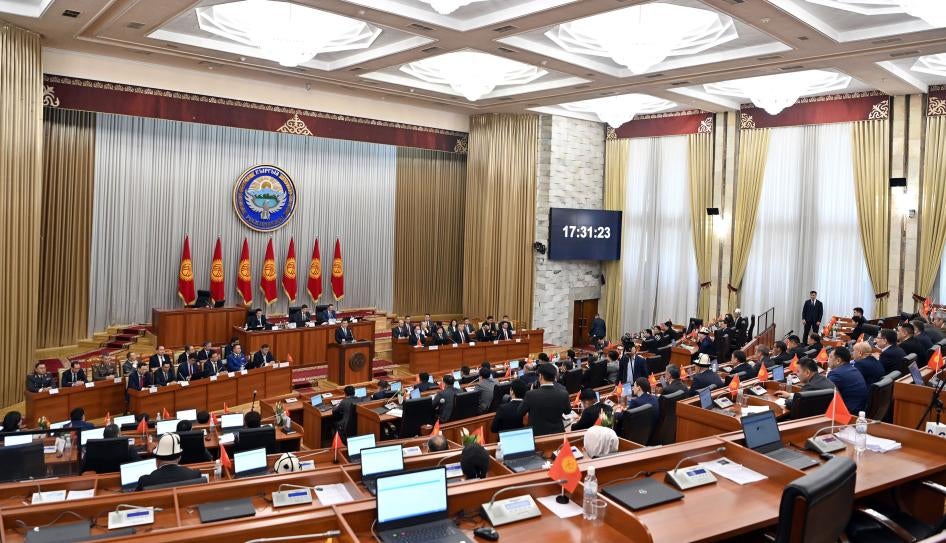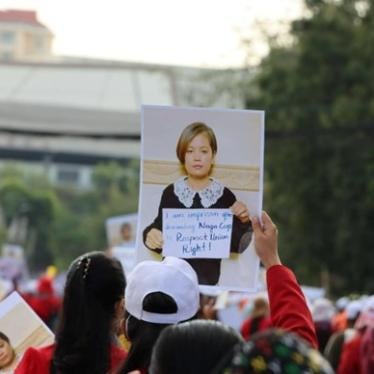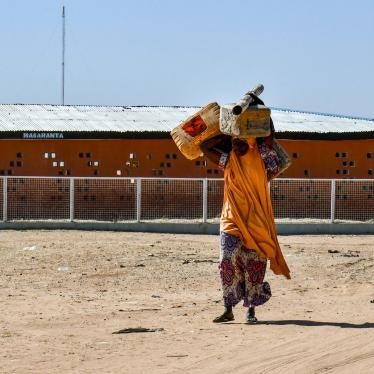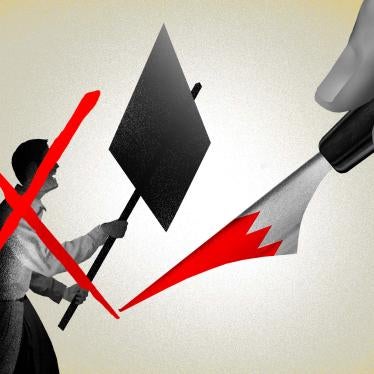(Berlin, October 28, 2022) – In Kyrgyzstan, the authorities have increased efforts to control and censor mass media amid their recent crackdown on freedom of expression and civil society, Human Rights Watch said today.
On October 26, 2022, the Kyrgyz government ordered a two-month blockage of the websites of Azattyk Media, the Kyrgyz service of Radio Free Europe/Radio Liberty, because of a video covering the recent border conflict between Kyrgyzstan and Tajikistan. The order was based on the Law on Protection from False Information, which drew significant criticism when adopted in August 2021. The authorities claim the video used hate speech and false information that Kyrgyzstan had attacked Tajikistan, which the radio service’s Tajikistan-based correspondent referred to during a video segment featuring correspondents in both Bishkek and Dushanbe, the countries’ capitals.
“It is standard journalistic practice to provide information from both sides of the conflict,” said Syinat Sultanalieva, Central Asia Researcher at Human Rights Watch. “The blockage of Azattyk Media is a blatant attempt to control and censor independent journalism in Kyrgyzstan in violation of the country’s international human rights obligations, particularly with respect to freedoms of expression and of the media.”
The blockage of Azattyk’s websites followed a protest outside Azattyk’s office on October 13, saying it should be closed down, and an initiative by a member of the Kyrgyz Parliament, Nadira Narmatova, for people to sign a petition calling for closure of Azattyk Media and two other media – Kloop, and Kaktus.Media. On October 14, an open letter signed by 70 public figures called for closing these organizations, contending that they were foreign-funded entities working against the national interests of the country. At least seven people included in the list of public figures publicly denied signing the letter.
The Kyrgyz Ministry of Culture and Information, which is responsible for enforcing the Protection from False Information Law, had previously blocked websites of the ResPublica newspaper for two months, starting in June, and attempted to block the website of the 24.kg information agency in August over an anonymous complaint of false information. The website was subsequently unblocked.
On September 28, the Kyrgyz president’s administration submitted draft amendments to the Law on Mass Media, which would include penalties for “abuse of freedom of speech” (Article 4) for public consideration. The last day to submit comments on the draft amendments is October 28, after which the amendments will be submitted to parliament for consideration.
On October 27, dozens of representatives of Kyrgyzstan’s media community published an open appeal to the Kyrgyz government to immediately cease all pressure on freedom of speech and freedom of media and to withdraw the Protection from False Information Law.
Analysis by several mediagroups found that actions that constitute “abuse of freedom of speech” in the proposed amendments would include sending “subliminal messaging” to viewers, mentioning any organization that was legally liquidated or whose activities were prohibited in Kyrgyzstan, and distributing any information prohibited by law.
The draft law also would increase registration requirements for foreign-based and funded mass media organizations, including identifying their main thematic interests to be covered and their sources of funding. It would also require other media, including internet publications, to register.
Media experts have pointed out that the text of the draft amendments is very similar to passages of the Russian Law on Mass Media and have expressed concern that the law would be used to eliminate media outlets critical of the government.
“Kyrgyzstan should stand up for, not undermine, independent media,” Sultanalieva said. “Authorities should immediately cease their attempts at controlling this fundamental human right by withdrawing the proposed amendments and uphold its commitment to respect all freedoms and human rights in the country.”








